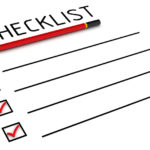Your Nosy Neighbor Can Find Out About Your Probate

Most people think of probate (the process of collecting, managing, and distributing a deceased person’s money and property) as a private process. However, because wills are filed at the courthouse, probated estates become a matter of public record. That means your nosy neighbor from down the street or a long lost family member can simply go down to the courthouse or hop online and find out about your probate and the assets you owned. Really.
And it’s not just your neighbor who has access to this information. After a death, Texas law requires that the person having possession of the deceased person’s will must file it with the probate court –even if there won’t be any probate court proceedings.
While your neighbor may be an annoyance and have no reason to view the information other than out of curiosity, others can get access to your public records and make your beneficiaries’ lives miserable.
Financial predators.
While today’s digital world is convenient, it’s also dangerous. Financial predators find ways to access sensitive personal information online. Since courts are part of a bureaucratic process that often moves slowly, months can elapse before you (or the court) realizes that your beneficiaries have been swindled.
Will Challengers.
Since a will that is filed with the probate court becomes a public record, those believing they have an interest (whether valid or invalid) can access the document and challenge the will. This can result in added costs and time defending the will from what could amount to a frivolous claim.
Avoid the “Nosy Neighbor” Factor with a Revocable Living Trust.
Revocable living trusts are almost never filed with a court, either before or after your death. Probate courts are not involved in supervising your trust administration. So, you can avoid intrusions by busy bodies and predators by creating a revocable living trust. A trust is the best way to keep your financial and family affairs private.
For more about estate planning issues see https://galligan-law.com/practice-areas/estate-planning/.

